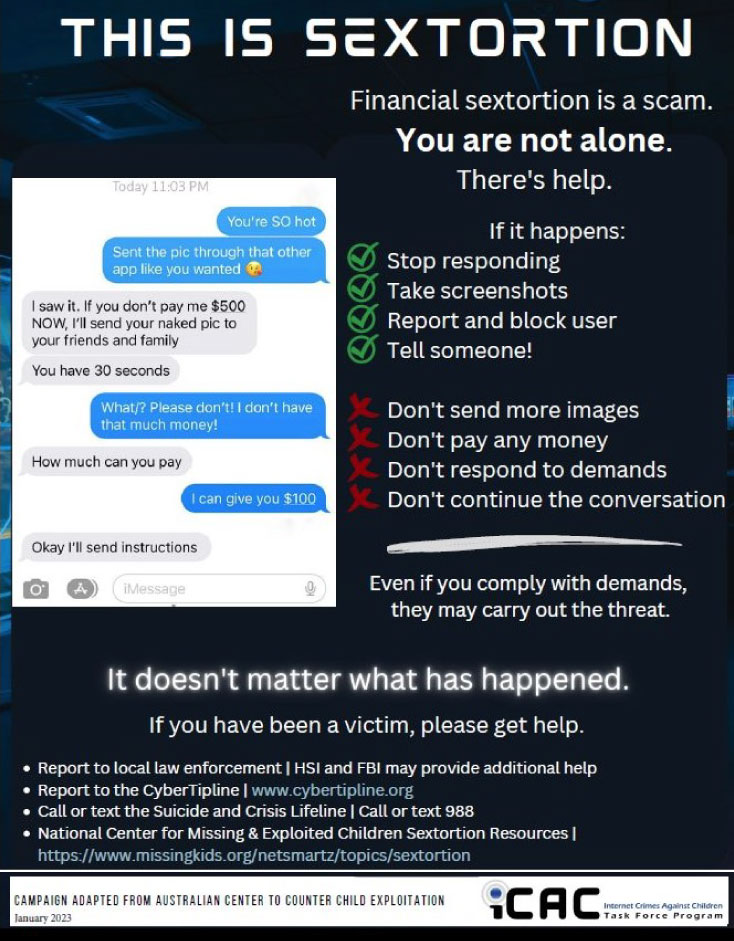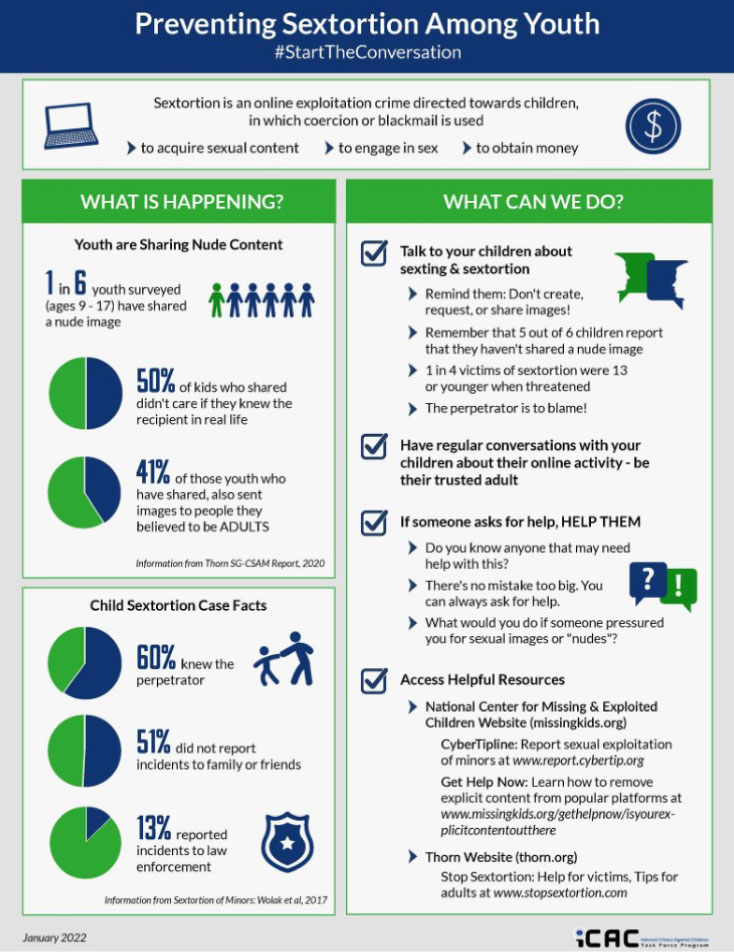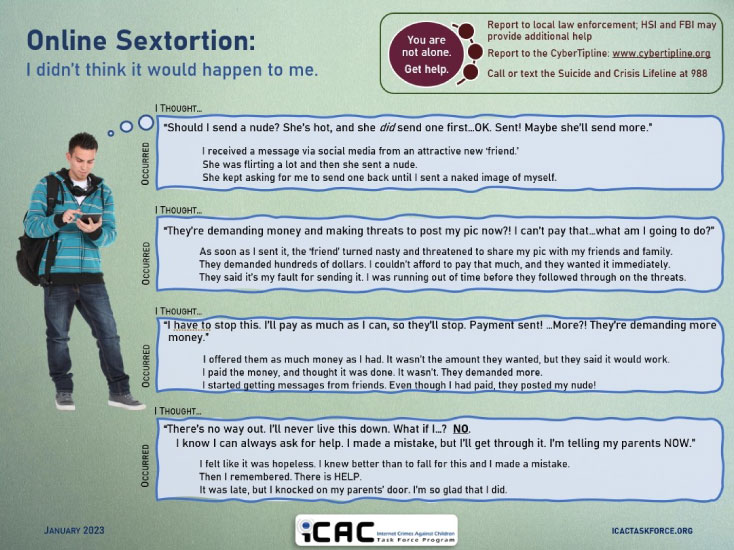Internet Crimes Against Children Units nationwide are seeing an increase in juvenile sextortion cases. These cases involve the offender obtaining sexually explicit material from minors, and then extorting them for money. An example of a sextortion scheme would be a minor meeting a person online, and this person and the minor then engaging in sexually explicit chats and exchanging images and/or videos. The suspect then threatens to send the files to family members or the public if they do not pay. Even after payment, the suspect often continues to request more money. These schemes typically lead back to foreign countries and are difficult to prosecute.Unfortunately, CCSO Detectives are seeing cases in which minors are falling victims to the scam and are paying the suspects without their family’s knowledge. Please speak with your children about the dangers on the internet. For further information, you can review this website provided by the National Center for Missing and Exploited Children. Learn More →
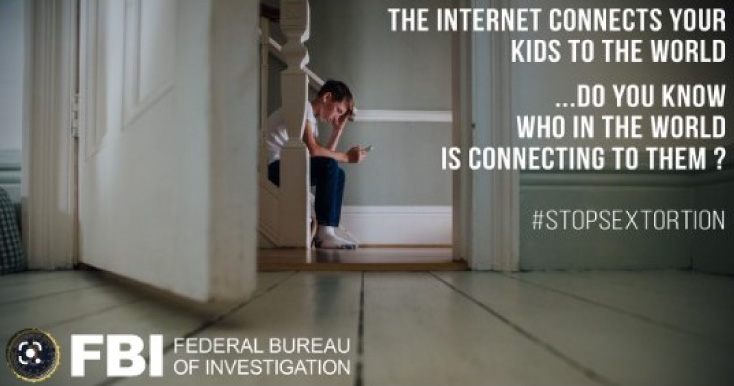
Sextortion Awareness
Predators acquire images from children and then they threaten to release the compromising material unless the victim sends additional images, money or gift cards. Often the predators demand payment through a variety of peer-to-peer payment applications. In many cases, however, predators release the images even if payments are made. The shame, fear, and confusion that victims experience when they are caught in this cycle often prevents them from asking for help or reporting the abuse. How we can help →
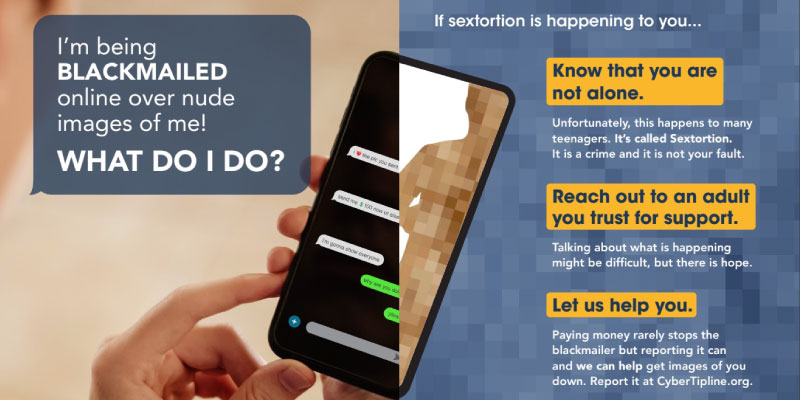
“How can I protect my child?”
Keeping an open line of communication with your child is the best defense. Young people need know about sextortion and need to understand where the risks are hiding. Explain to children that predators can pretend to be anyone or anything online. A stranger can reach out to them with bad intent. Mostly importantly, no matter what an application claims, nothing “disappears” online. Whoever takes a photo or video, it always has the potential to become public. Learn more →
